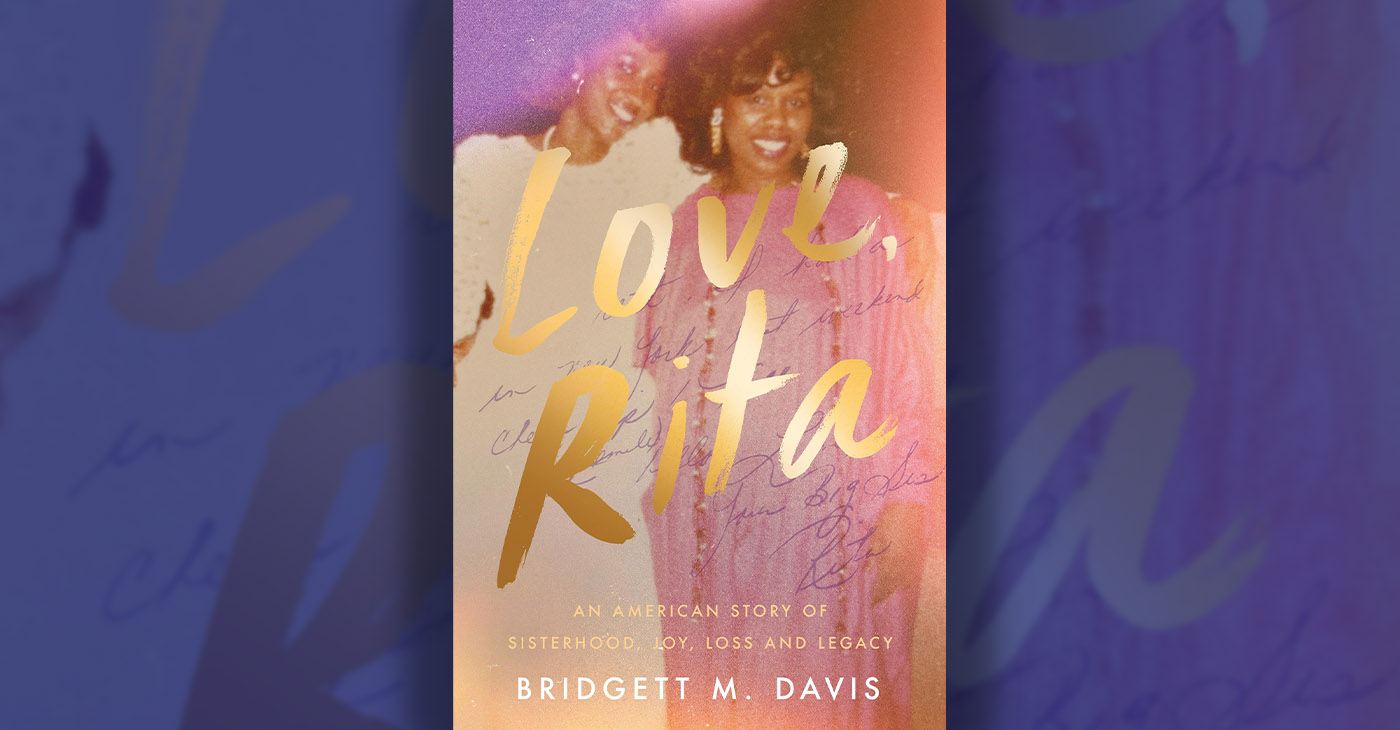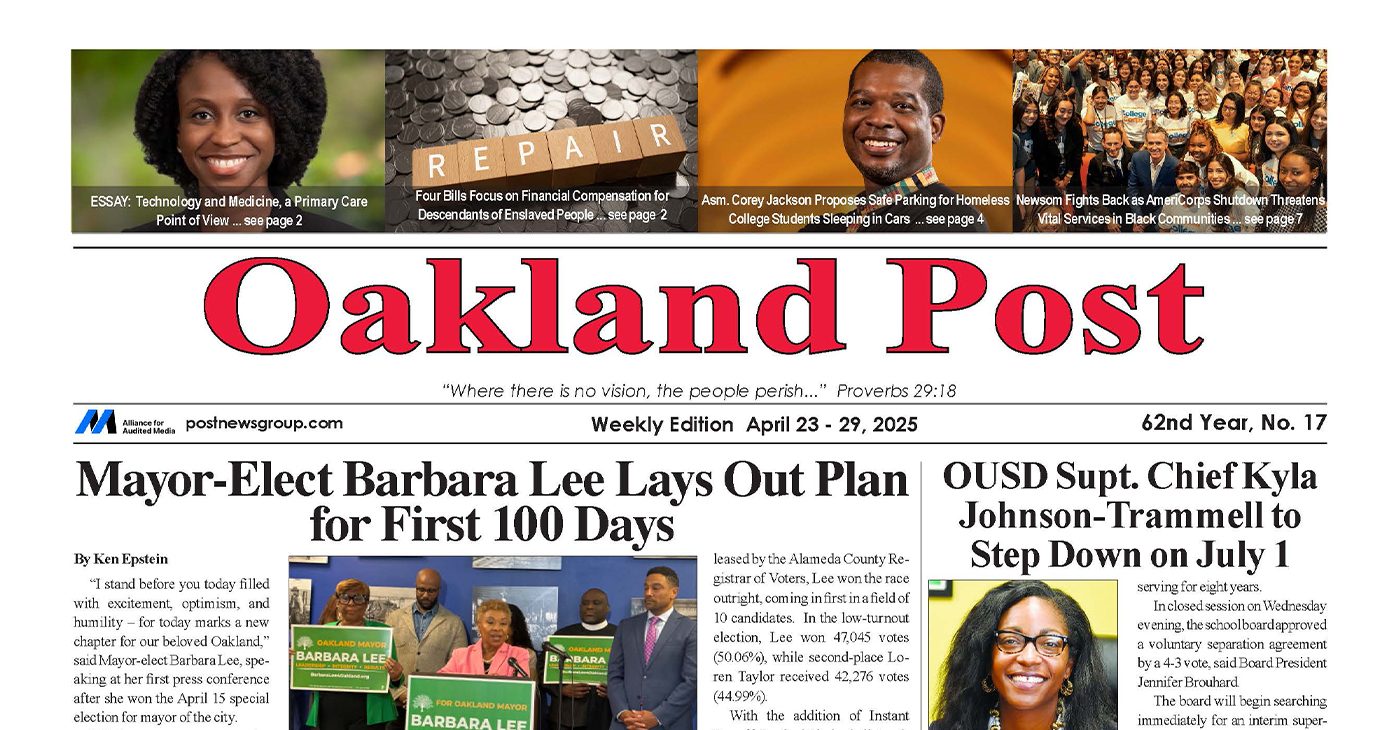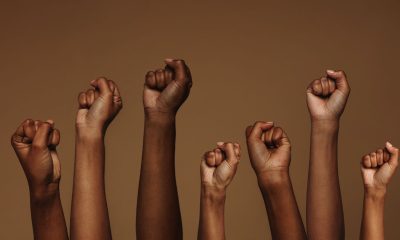Opinion
OP-ED: Black America Today
I freed a thousand slaves, I could have freed a thousand more if they knew they were slaves. ~ Harriet Tubman
We have explored our facts about the Republican Party and our facts about the Democratic Party and I think it is also imperative that we gather the courage to honestly face our reality. And so this week let us honestly look at the state of Black America today.
We know the proverbial 72 percent of all Black children being born to unwed mothers but let us look deeper.
According to the 2012 US Census Bureau American Community Survey was 28.1 percent which was an increase from 25.5 percent in 2005. Black families with children under 18 headed by a single mother have the highest rate of poverty at 47.5 percent.
According to the US Census Bureau 11.5 percent of African Americans live in government housing or section 8 housing while 13.6 percent receive TANF (formerly known as welfare). Slightly over 25 percent of African Americans receive SNAP (formerly known as food stamps).
The Black American adult population is 26.4 million. Black owned business only produced $135 billion in annual receipts while 10 million Asians produced $506 billion. Blacks were also out produced by fewer Mexican Americans, Chinese and Asian Indians.
There are 6 Black CEOs of Fortune 500 companies. Respectively there are nine Asian CEOs of Fortune 500 companies and 10 Hispanic/Latino CEOs of Fortune 500 companies.
Between 2005 to 2012 Black homeownership rates fell from 46 percent to 42.5 percent. The median value of homes owned by Black Americans decreased from $126,000 in 2011 to $122,200 in 2012.
In 2005 the median net worth for African Americans was $12,124. However by 2009 the African American median net worth decreased to $5,677 which was lower than it was in 1984.
Blacks make up just 14 percent of the US population but are 37 percent of the US homeless population.
The latest report shows that the Black unemployment rate is 11.4 percent, more than twice that of whites at 5.3 percent. The Bureau of Labor Statistics also shows that as of August 2014 the overall unemployment rate for Black youth (ages 16 to 19) is 32.8 percent. Some reports indicate that the unemployment rate for Black youth in Chicago Illinois is as high as 92. percent.
In 2009- 10 the national graduation rate for Black male students was 52 percent, New York state had the lowest graduation rate for Black males of 37 percent followed by the District of Columbia at 38 percent.

Karen Watson is author of the book, “Being Black and Republican in the Age of Obama”. Email karen.watson@gopbuzz.com
Of all adults arrested in 2012, 27.6 percent were Black. The percentage of black adults arrested for murder was 49.3 percent. Black juveniles accounted for 51.5 percent of all juveniles arrested for violent crimes. Blacks only make up 14 percent of the population.
These facts and trends for African Americans are deeply troubling. Albert Einstein said “the definition of insanity is doing the same thing over and over and expecting different results.” Join me next week as we begin to look at doing things differently.
Arts and Culture
BOOK REVIEW: Love, Rita: An American Story of Sisterhood, Joy, Loss, and Legacy
When Bridgett M. Davis was in college, her sister Rita was diagnosed with lupus, a disease of the immune system that often left her constantly tired and sore. Davis was a bit unfazed, but sympathetic to Rita’s suffering and also annoyed that the disease sometimes came between them. By that time, they needed one another more than ever.

By Terri Schlichenmeyer
Author: Bridgett M. Davis, c.2025, Harper, $29.99, 367 Pages
Take care.
Do it because you want to stay well, upright, and away from illness. Eat right, swallow your vitamins and hydrate, keep good habits and hygiene, and cross your fingers. Take care as much as you can because, as in the new book, “Love, Rita” by Bridgett M. Davis, your well-being is sometimes out of your hands.
It was a family story told often: when Davis was born, her sister, Rita, then four years old, stormed up to her crying newborn sibling and said, ‘Shut your … mouth!’
Rita, says Davis, didn’t want a little sister then. She already had two big sisters and a neighbor who was somewhat of a “sister,” and this baby was an irritation. As Davis grew, the feeling was mutual, although she always knew that Rita loved her.
Over the years, the sisters tried many times not to fight — on their own and at the urging of their mother — and though division was ever present, it eased when Rita went to college. Davis was still in high school then, and she admired her big sister.
She eagerly devoured frequent letters sent to her in the mail, signed, “Love, Rita.”
When Davis was in college herself, Rita was diagnosed with lupus, a disease of the immune system that often left her constantly tired and sore. Davis was a bit unfazed, but sympathetic to Rita’s suffering and also annoyed that the disease sometimes came between them. By that time, they needed one another more than ever.
First, they lost their father. Drugs then invaded the family and addiction stole two siblings. A sister and a young nephew were murdered in a domestic violence incident. Their mother was devastated; Rita’s lupus was an “added weight of her sorrow.”
After their mother died of colon cancer, Rita’s lupus took a turn for the worse.
“Did she even stand a chance?” Davis wrote in her journal.
“It just didn’t seem possible that she, someone so full of life, could die.”
Let’s start here: once you get past the prologue in “Love, Rita,” you may lose interest. Maybe.
Most of the stories that author Bridgett M. Davis shares are mildly interesting, nothing rare, mostly commonplace tales of growing up in the 1960s and ’70s with a sibling. There are a lot of these kinds of stories, and they tend to generally melt together. After about fifty pages of them, you might start to think about putting the book aside.
But don’t. Not quite yet.
In between those everyday tales, Davis occasionally writes about being an ailing Black woman in America, the incorrect assumptions made by doctors, the history of medical treatment for Black people (women in particular), attitudes, and mythologies. Those passages are now and then, interspersed, but worth scanning for.
This book is perhaps best for anyone with the patience for a slow-paced memoir, or anyone who loves a Black woman who’s ill or might be ill someday. If that’s you and you can read between the lines, then “Love, Rita” is a book to take in carefully.
Activism
Faces Around the Bay: Author Karen Lewis Took the ‘Detour to Straight Street’
“My life has been a roller-coaster with an unlimited ride wristband! I was raised in Berkeley during the time of Ron Dellums, the Black Panthers, and People’s Park. I was a Hippie kid, my Auntie cut off all our hair so we could wear the natural styles like her and Angela Davis.

By Barbara Fluhrer
I met Karen Lewis on a park bench in Berkeley. She wrote her story on the spot.
“My life has been a roller-coaster with an unlimited ride wristband! I was raised in Berkeley during the time of Ron Dellums, the Black Panthers, and People’s Park. I was a Hippie kid, my Auntie cut off all our hair so we could wear the natural styles like her and Angela Davis.
I got married young, then ended up getting divorced, raising two boys into men. After my divorce, I had a stroke that left me blind and paralyzed. I was homeless, lost in a fog with blurred vision.
Jesus healed me! I now have two beautiful grandkids. At 61, this age and this stage, I am finally free indeed. Our Lord Jesus Christ saved my soul. I now know how to be still. I lay at his feet. I surrender and just rest. My life and every step on my path have already been ordered. So, I have learned in this life…it’s nice to be nice. No stressing, just blessings. Pray for the best and deal with the rest.
Nobody is perfect, so forgive quickly and love easily!”
Lewis’ book “Detour to Straight Street” is available on Amazon.
Activism
Oakland Post: Week of April 23 – 29, 2025
The printed Weekly Edition of the Oakland Post: Week of April 23 – 29, 2025

To enlarge your view of this issue, use the slider, magnifying glass icon or full page icon in the lower right corner of the browser window.
-

 Activism4 weeks ago
Activism4 weeks agoOakland Post Endorses Barbara Lee
-

 Activism3 weeks ago
Activism3 weeks agoOakland Post: Week of April 2 – 8, 2025
-

 #NNPA BlackPress3 weeks ago
#NNPA BlackPress3 weeks agoTrump Profits, Black America Pays the Price
-

 Activism2 weeks ago
Activism2 weeks agoOakland Post: Week of April 9 – 15, 2025
-

 #NNPA BlackPress3 weeks ago
#NNPA BlackPress3 weeks agoHarriet Tubman Scrubbed; DEI Dismantled
-

 #NNPA BlackPress3 weeks ago
#NNPA BlackPress3 weeks agoTrump Targets a Slavery Removal from the National Museum of African-American History and Culture
-

 #NNPA BlackPress3 weeks ago
#NNPA BlackPress3 weeks agoLawmakers Greenlight Reparations Study for Descendants of Enslaved Marylanders
-

 #NNPA BlackPress3 weeks ago
#NNPA BlackPress3 weeks agoNew York Stands Firm Against Trump Administration’s Order to Abandon Diversity in Schools

























































